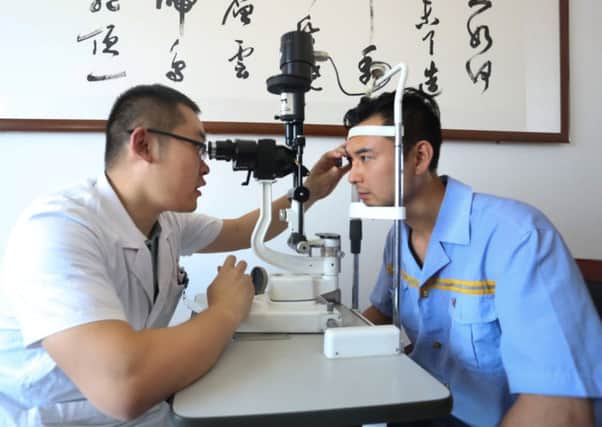Queen’s University research aims to stop Chinese people going blind


The researchers – whose work has been published in Lancet Global Health – said glaucoma is the leading cause of irreversible blindness affecting 64.3m people in the world (one third of them in China). It is treatable with eye drops and surgery.
“However, treatment must be administered early, and only around 10% of those needing such treatment receive it in middle-income countries such as China,” said the university.
Advertisement
Hide AdAdvertisement
Hide AdDr Jianjun Tang, from the Centre of Public Health, said enacting a national glaucoma screening programme “could save the government money in the long-term, as it would reduce the demands on resources for the large population who would otherwise suffer completely avoidable loss of sight”.
The study found nearly three million years of blindness could be avoided across China’s population of 434m people aged 50-and-over via a screening programme.
The research was a collaboration between Queen’s University Belfast, Wenzhou Medical University, Renmin University of China and Orbis International (a non-profit organisation).
Professor Nathan Congdon from Queen’s University Belfast and Director of Research at Orbis International, said: “This paper has the potential to be a game-changer for Orbis and our partners and beneficiaries world-wide. It fundamentally alters the way we all think about this disease, from a passive approach of waiting for patients to seek care, often too late, to actively reaching out into the community, catching glaucoma before blindness occurs.”